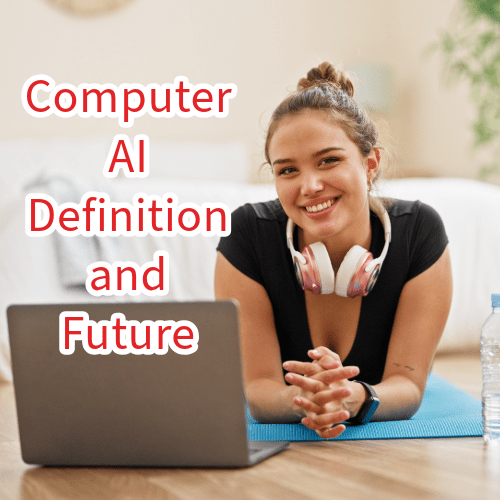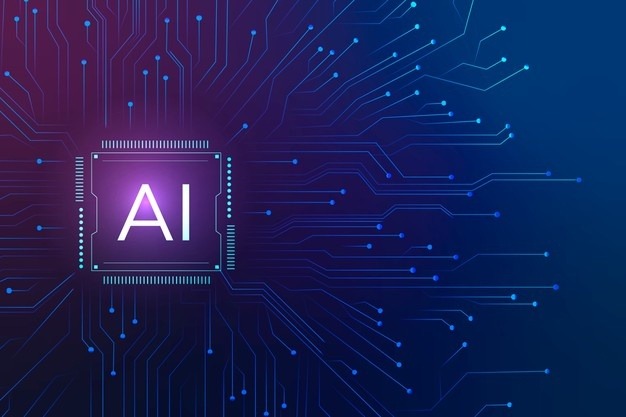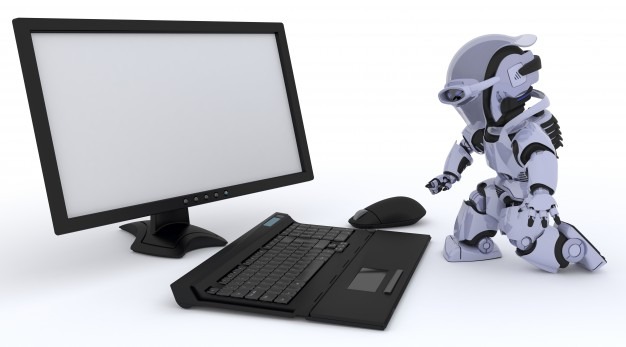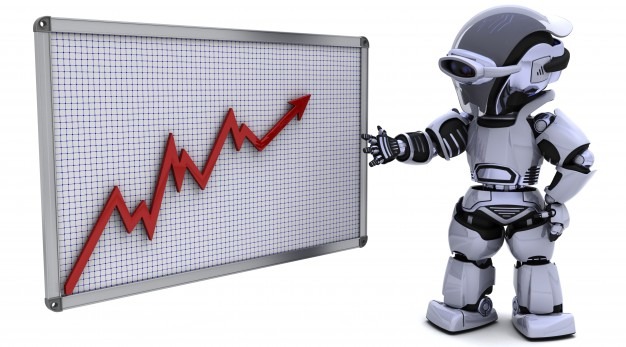
Artificial Intelligence (AI) has become a fundamental part of our lives, transforming industries, revolutionizing how we interact with technology, and challenging the boundaries of human potential.
It’s crucial to understand what AI truly is, how it functions, and what the future holds for this advancing technology.
Computer AI – Definition and Future

AI: A Definition
Artificial Intelligence (AI) refers to a machine’s capability to imitate intelligent human behavior.
AI is designed to perform tasks that typically require human intelligence, including recognizing patterns, learning from experience, understanding natural language, problem-solving, and decision-making.
AI uses algorithms, mathematical models, and computational power that process vast amounts of data to find patterns, make predictions, or suggest actions.

AI – Two broad types
Narrow AI (Weak AI)
This type of AI is specialized and focused on a single task or a limited range of functions. Most of the AI systems in use today, such as voice assistants (Siri, Alexa), image recognition software, and recommendation systems fall under this category.
These AI systems are proficient at specific tasks but do not possess generalized intelligence.
General AI (Strong AI)
This is a more advanced, theoretical type of AI that would have the ability to understand, learn, and apply intelligence in a variety of tasks at a human-like level.
General AI is like science fiction for now, as we currently do not have the technology to create machines with human-level cognitive flexibility and self-awareness.

A subset of AI, Machine Learning (ML), focuses on enabling computers to learn from data and improve over time without explicit programming.
Within ML, there is a specialization called Deep Learning, which uses neural networks with multiple layers (deep networks) to identify complex patterns and relationships within vast datasets.
Components of AI
Data
Data is the raw material that enables AI systems to learn, adapt, and improve. Without data, AI algorithms would lack the information they need to make accurate decisions.
Algorithms
Algorithms are rules or instructions that AI systems use to analyze data, learn patterns, and make decisions.
Algorithms are essential in guiding the AI’s “thinking” process, from simple classification tasks to complex problem-solving scenarios.

Computational Power
AI requires processing power to analyze vast datasets and execute complex algorithms efficiently.
Advancements in hardware, such as Graphics Processing Units (GPUs) and Tensor Processing Units (TPUs), have made it possible to perform AI computations at unprecedented speeds.
Neural Networks
These are computational models inspired by the human brain’s structure, consisting of layers of nodes (artificial neurons) that work together to process information.
Deep neural networks have enabled significant breakthroughs in areas like image and speech recognition.
Natural Language Processing (NLP)
NLP enables machines to understand and interpret human language. NLP helps AI to communicate with us through text or voice in a human-like way, and it has become integral to chatbots, virtual assistants, and automated customer service.

Applications of AI Today
Healthcare: AI assists in diagnosing diseases, predicting patient outcomes, personalizing treatment plans, and drug discovery. Systems like IBM Watson Health analyze medical data to provide insights, while diagnostic tools can detect anomalies in medical images with high accuracy.
Finance: Financial institutions use AI for fraud detection, risk management, and personalized banking experiences. Algorithms can analyze vast amounts of transaction data, spotting potential frauds and improving financial security.
Transportation: AI is the cornerstone of autonomous driving technologies, helping vehicles interpret real-world scenarios and make real-time decisions. Companies like Tesla and Google’s Waymo are at the forefront of this technology, promising a future where vehicles can operate without human intervention.

Retail and E-commerce: AI powers recommendation systems, enabling platforms like Amazon and Netflix to suggest products and content tailored to individual preferences. Chatbots, powered by NLP, also enhance customer service by providing instant support.
Education: Personalized learning platforms use AI to adapt educational content based on individual learning paces, strengths, and weaknesses. Tools like Coursera incorporate AI to make learning more effective and engaging.
The Future of AI

- Advancements in AI Technology
Development of Artificial General Intelligence (AGI)
While AGI is still theoretical, researchers are exploring ways to create machines capable of performing any intellectual task that a human can do.
AGI would allow machines to understand and reason in a manner comparable to human cognition.
Enhanced Human-Machine Collaboration
In the future may see the rise of “co-bots,” or collaborative robots that work alongside humans in factories, offices, and homes. These machines will be designed to augment human capabilities, making us more efficient and productive.

Personalization
Future AI systems could offer greater levels of personalization. For instance, virtual assistants could anticipate our needs based on contextual understanding, learning our habits, preferences, and routines.
AI in Creative Fields
AI in creative industries is expected to expand, from generating music and artwork to aiding in film production and content writing.
This will open new possibilities for AI-driven creativity but will also raise questions about authorship and originality.

- Ethical and Societal Challenges
Data Privacy
AI’s reliance on data has sparked concerns about privacy and data security. As AI systems gather and analyze vast amounts of personal information, ensuring privacy and data protection becomes vital.
Job Displacement
As AI automates repetitive tasks, concerns about job displacement are growing. Some roles in fields like manufacturing, retail, and logistics may be automated, potentially disrupting the workforce.
However, AI is also expected to create new roles focused on overseeing, managing, and improving AI systems.

Bias and Fairness
AI algorithms can inherit biases present in the data they are trained on, leading to unfair outcomes. Addressing algorithmic bias is essential to ensure that AI technologies are fair and inclusive.
Ethical Decision-Making
AI systems will soon be tasked with making decisions that have ethical implications, such as in autonomous driving or healthcare. Establishing ethical guidelines and regulatory frameworks will be critical to managing these decisions responsibly.
- Technical Challenges
Explainability and Transparency
Many AI models, especially deep neural networks, operate as “black boxes,” meaning that even their creators may not fully understand how they arrive at certain decisions.
Researchers are working on developing explainable AI (XAI) to make AI systems more transparent.

Generalization and Adaptability
Current AI systems are performing well in controlled environments but struggling to adapt to new situations. Developing AI that can work on different tasks and adapt to unfamiliar scenarios is a major research goal.
Energy Efficiency
AI computations require substantial energy, particularly for training large models. Reducing the environmental impact of AI will be essential as its adoption continues to grow.

AI is one of the most exciting and powerful technologies of our time. Its applications across various industries are revolutionizing how we live and work, and the future promises even more advancements.
AI can build a bright future where technology works in harmony with humanity, enhancing our capabilities and improving our quality of life.
AI Tools for You
https://www.bestprofitsonline.com/myblog/newai
Tip
How To Improve Your Social Media Marketing
